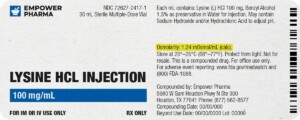The androgen testosterone, often known as the male sex hormone, is responsible for the male reproductive system’s masculine traits. The Leydig cells, which are situated between the seminiferous tubules in the male testes, are where it is largely made. The adrenal hormones dehydroepiandrosterone (DHEA), dehydroepiandrosterone sulfate (DHEA-S), androstenedione, and androstanediol are converted in the peripheral tissues to testosterone and estrogen. It is also produced indirectly in lower amounts in the adrenal glands. In females, the ovaries are where testosterone is made.[1][2]
Even though testosterone serves primarily to develop secondary characteristics in men, it serves other essential functions within the human body. Some additional roles performed by testosterone include the following:[3][4][5]
In the skeletal system, testosterone aids in bone maintenance as well as growth. By decreasing the amounts of bone osteoclasts, testosterone helps decrease bone resorption and, consequently, increase bone density. This action is performed through the aromatization of testosterone to estradiol, which then activates alpha and beta receptors on the bone. Additionally, testosterone is converted to the active metabolite dihydrotestosterone (DHT) by means of the enzyme 5-alpha reductase; DHT is two to three times more potent than testosterone and it stimulates the osteoblasts within the bones and promote bone growth.
In the muscles, testosterone helps in the development of lean body mass, muscle volume, muscle strength, and the loss of fatty tissue.
Studies have indicated that testosterone is beneficial in the production of red blood cells. This effect is generally seen more in older rather than younger men. However, this may also lead to erythrocytosis as an adverse effect in men receiving exogenous testosterone supplements.
Through mechanisms that have not been fully defined, testosterone has been shown to play a role in individuals’ mood and mental state. Research studies carried out indicated that men suffering from low testosterone had an improvement in their cognitive abilities as well as mood after receiving exogenous testosterone supplements.
Generally, testosterone levels do not begin to increase until around the age of puberty. Once puberty is achieved, testosterone levels increase significantly until about the third or fourth decade of life, after which they begin to decrease gradually. When this occurs, males may manifest with varied symptoms such as loss of body hair, decreased bone density, decreased libido and erectile dysfunction, decreased lean body mass, and increased body fat, among other symptoms. Individuals manifesting signs and symptoms of low testosterone levels may benefit from exogenous testosterone administration.[6]






 Testosterone Pellets
Testosterone Pellets Estradiol Pellets
Estradiol Pellets Estradiol Cypionate Injection
Estradiol Cypionate Injection Nandrolone Decanoate Injection
Nandrolone Decanoate Injection Testosterone Cypionate Injection
Testosterone Cypionate Injection